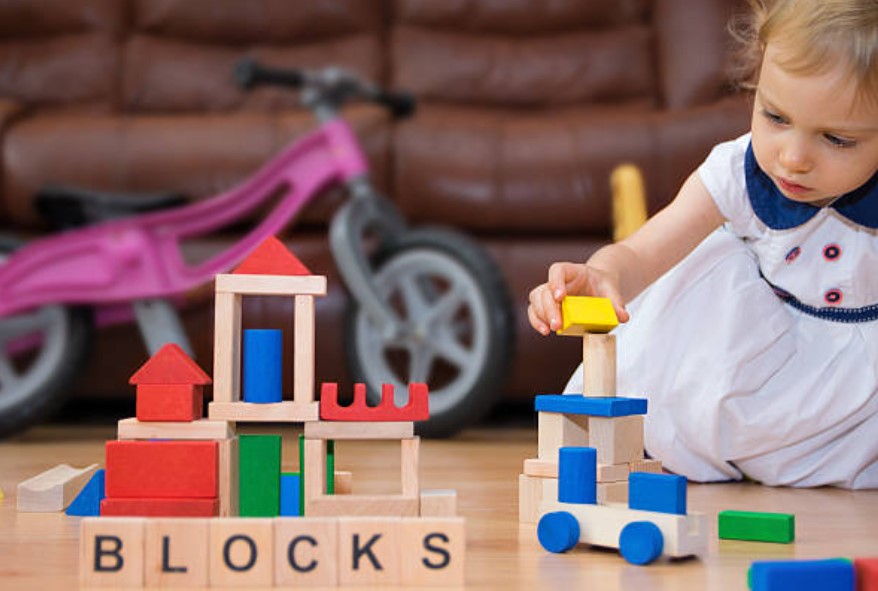Montessori toys are carefully designed to stimulate a child’s natural curiosity and foster hands-on learning. They promote essential developmental milestones while encouraging independence, problem-solving, and creativity. Choosing the right Montessori toy for your toddler can significantly impact their growth and learning experience. In this guide, we’ll explore a comprehensive list of the best Montessori toys for toddlers and provide tips on selecting the perfect one for your child’s age and stage.

Why Age-Appropriate Montessori Toys Matter
Montessori education emphasizes learning through play, but the effectiveness of these activities depends on matching the toy to the child’s developmental stage. Age-appropriate toys:
-
Support Cognitive Development: Toys aligned with a child’s mental abilities enhance problem-solving and memory skills.
-
Refine Motor Skills: Activities like stacking and sorting build fine and gross motor coordination.
-
Encourage Emotional Growth: Role-playing toys help toddlers express feelings and develop empathy.
Selecting age-appropriate toys ensures your child remains engaged, challenged, and motivated to explore.

Best Montessori Toys for Toddlers: Features and Benefits
Below is a curated list of top Montessori toys for toddlers, highlighting their developmental benefits and unique features.
-
Wooden Shape Sorter Box
★ Benefits: Enhances problem-solving, hand-eye coordination, and spatial awareness. ★ Features: Crafted from natural, durable wood with brightly colored shapes that fit into corresponding slots. ★ Developmental Focus: Cognitive skills, fine motor control, and logical thinking. -
Stacking Rings
★ Benefits: Teaches size differentiation and hand-eye coordination. ★ Features: Smooth wooden rings that children stack on a central pole. ★ Developmental Focus: Fine motor skills and understanding order and sequence. -
Montessori Wooden Puzzle Set
★ Benefits: Strengthens memory and pattern recognition. ★ Features: Animal and geometric puzzles with large, easy-to-grasp pieces. ★ Developmental Focus: Cognitive growth and problem-solving. -
Color and Shape Matching Board
★ Benefits: Develops visual perception and categorization skills. ★ Features: A board with colored pegs and matching slots. ★ Developmental Focus: Sorting, matching, and fine motor development. -
Threading and Lacing Beads
★ Benefits: Improves hand dexterity and concentration. ★ Features: Large wooden beads with lacing cords for threading. ★ Developmental Focus: Fine motor precision and pattern-making. -
Montessori Balance Board
★ Benefits: Promotes gross motor skills and balance. ★ Features: A sturdy, curved board for rocking, balancing, or imaginative play. ★ Developmental Focus: Coordination, strength, and physical exploration. -
Montessori Counting Rods
★ Benefits: Introduces early math concepts. ★ Features: Wooden rods of varying lengths with numbers printed for visual learning. ★ Developmental Focus: Numeracy, counting, and size differentiation. -
Object Permanence Box
★ Benefits: Helps children understand object permanence. ★ Features: A box with a small ball that reappears after being dropped. ★ Developmental Focus: Cognitive development and understanding cause and effect. -
Practical Life Toy Set
★ Benefits: Encourages independence and life skills. ★ Features: Miniature cleaning or kitchen tools sized for toddler hands. ★ Developmental Focus: Fine motor skills and practical life skills. -
Wooden Animal Figurines
★ Benefits: Enhances imaginative play and social skills. ★ Features: Realistic animal models made from safe, non-toxic wood. ★ Developmental Focus: Language development and role-playing.

How to Choose the Right Montessori Toy for Your Toddler
When selecting a Montessori toy for your child, consider these key factors:
-
Age Appropriateness
-
Choose toys that match your child’s developmental stage to keep them engaged and learning. For example, stacking rings are ideal for 12-18 months, while puzzles and threading beads suit older toddlers.
-
-
Natural Materials
-
Montessori toys are typically made from natural materials like wood and cotton. These materials provide a sensory-rich experience and are more durable and environmentally friendly.
-
-
Open-Ended Play
-
Select toys that allow for creativity and multiple uses. A balance board can be a rocking surface, a slide, or a bridge, depending on your child’s imagination.
-
-
Simplicity
-
Avoid flashy, overly complex toys. Montessori toys focus on single-purpose design to encourage concentration and mastery of specific skills.
-
-
Safety
-
Ensure toys meet safety standards with smooth edges, non-toxic paints, and parts too large to be swallowed.
-

Age-Specific Recommendations
-
12 to 18 Months: Look for toys that promote sensory exploration, hand-eye coordination, and object permanence, such as stacking rings, shape sorters, and simple puzzles.
-
18 to 24 Months: Introduce toys that build fine motor skills and problem-solving abilities, including threading beads and color-matching boards.
-
2 to 3 Years: Focus on toys that enhance imagination, practical life skills, and early math concepts, such as a play kitchen, balance board, and counting rods.

The Montessori Difference
Montessori toys are thoughtfully crafted to meet a child’s natural developmental needs. By selecting the right toy, parents can foster their toddler’s curiosity, independence, and joy for learning. Explore a wide selection of Montessori toys at Montessori Australia and watch your child’s love for discovery grow.

